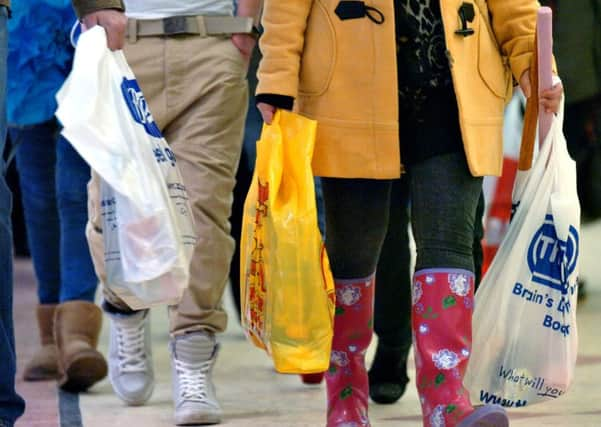More staff in stores as trade figures hold


The CBI’s distributive trades report found a greater percentage of retailers said they would take on extra staff in the year to December rather than not, giving a balance of plus 16 per cent, the highest since May 2002.
It also said sales volumes were resilient this month, at plus 27 per cent, although slightly below expectations of plus 31 per cent.
Advertisement
Hide AdAdvertisement
Hide AdHowever, the squeeze on high street prices continued, with a balance of plus 12 per cent of retailers saying that average selling prices were rising at their slowest pace since May 2009.
The strongest volume sales performers were grocers, furniture and carpet sellers and hardware and DIY stores, with clothing and specialist food and drink retailers lagging behind.
Retailers are preparing for Black Friday tomorrow when stores and online retailers offer discounts in a bid to kick-start Christmas trading.
Survey chairman Barry Williams, who is Asda’s chief merchandising officer for food, said: “It’s no secret that it has been a demanding year for the retail industry, but shopkeepers haven’t been pulling their punches when it comes to getting shoppers through their doors – borne out with the lowest essential item inflation in five years and growing online sales.”
Advertisement
Hide AdAdvertisement
Hide AdOfficial figures this month put Consumer Price Index inflation at 1.3 per cent, while pay, excluding bonuses, also hit 1.3 per cent. Economists were encouraged by this, as pay has lagged behind inflation for the last six years.
IHS Global Insight chief economist Howard Archer said November was “a pretty active” period for shoppers.
But he added: “Retailers cannot take a strong Christmas for granted and this will likely keep them on their toes on the promotions front –given that many consumers’ purchasing power has been constrained appreciably by extended low earnings growth – and the recent increases in earnings are still limited and from a very low base.”
Another jobs hope boost came after new European Commission President Jean-Claude Juncker set out his plans to generate hundreds of billions of euros in new investment in a bid to kick-start the EU’s flagging economy.
Advertisement
Hide AdAdvertisement
Hide AdAddressing the European Parliament in Strasbourg, Mr Juncker said his “grand bargain to put Europe back to work” should “unlock” 315 billion euros (£250bn) over the next three years.
Downing Street reacted cautiously to the proposals, emphasising that there would be no overall increase in the EU budget as a result.
“The EU budget for the period has been set and it was a reduction,” Prime Minister David Cameron’s official spokesman said. “That’s what’s been agreed by all 28 members and that’s what will be stuck to.”
Elsewhere critics complained that there was little new public money and that the scheme relied heavily on generating new investment from the private sector.
Advertisement
Hide AdAdvertisement
Hide AdUnder the plan, a new European fund for strategic investments will be set up, built on a guarantee of 16 billion euros (£12.6bn) from the EU budget, combined with five billion euros (£4bn) from the European Investment Bank.